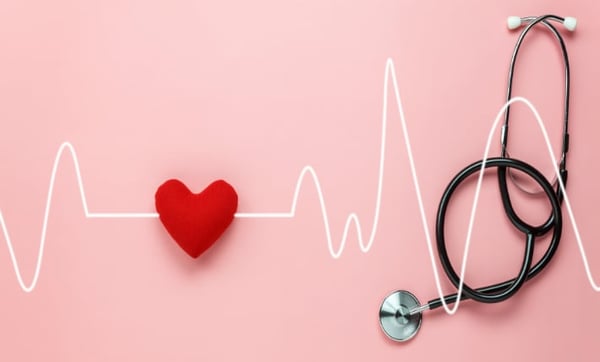What is critical illness cover?
The future is never certain, but critical illness cover can give families a financial lifeline. But what is critical illness cover and how does it work?

Critical illness cover could pay out a lump sum if you’re diagnosed with or undergo a medical procedure for one of the specified critical illnesses that we cover, which is covered by the policy.
The conditions covered by our policy can be life changing. Critical illness cover is a way to help you and your family at a difficult time. It could provide financial support for your recovery or to help adjust to a new normal.
There are many critical illnesses covered by L&G, so read our guide for a detailed breakdown. We don't cover everything, but we aim to include many conditions that worry us all. This includes severe conditions like certain cancers, as well as heart attacks and strokes.
For example, L&G Critical Illness Insurance covers the following:
- Cancer – excluding less advanced cases.
- Heart attacks – of specified severity.
- Stroke – where the symptoms last at least 24 hours.
- Kidney failure – requiring permanent dialysis.
- Blindness – permanent and irreversible.
How does critical illness insurance work?
| When you take out critical illness insurance, you could be eligible for a payout if you become critically unwell and your illness is covered by your insurer. |
| Any payout would be paid to you, the policyholder. |
|
L&G Critical Illness Cover will only pay out once if you make a valid claim for this additional cover. Following this, your policy would end and you would no longer be covered for critical illness. This wouldn't affect the full cover for life insurance or decreasing life insurance. |
| Critical illness policies sometimes have a ‘survival period’. For example, with L&G’s Critical Illness Cover, you must survive for 14 days from diagnosis. |
| Critical illness insurance is often available as an add-on. For instance, you can choose to take out L&G’s Critical Illness Cover when you take out Life Insurance or Decreasing Life Insurance |
'Level term' vs 'decreasing' critical illness cover
If you take out critical illness cover, you can take it out with a ‘level term’ or ‘decreasing’ life insurance policy.
| Level term life insurance | Decreasing life insurance |
| Your premiums remain the same | Your premiums remain the same |
| Can protect a range of outgoings | Often used to cover a mortgage only |
| A fixed sum payout | The life insurance payout reduces over time inline with the way a repayment mortgage reduces. However, the amount of critical illness cover that you choose will stay the same throughout the policy. |
Read our guide on the differences between ‘level term’ and ‘decreasing’ life insurance.
Life insurance is designed to pay out if you die while covered by the policy, so long as a valid claim has been made. In contrast, critical illness insurance provides a cash sum if you experience a critical illness or injury (as defined by your policy).
No, critical illness insurance is different to income protection insurance. Following an approved claim, a critical illness policy pays a one-off lump sum to the policyholder. In contrast, income protection is designed to provide regular payments – known as a monthly ‘benefit’ – if you’re unable to work due to illness or injury. The insurer would pay your claim unti you return to work, your policy ends or you die.
You can make an income protection insurance claim for any illness or injury that stops you from working. The benefit starts after you’ve been unable to work for a period between 4 and 52 weeks depending on the deferred period chosen when taking out the policy. In contrast critical illness insurance pays a cash sum if you suffer a condition covered by your policy and you survive for 14 days.
Learn more about the differences between critical illness cover and income protection.
What is not covered by critical illness insurance?
A critical illness policy excludes many types of illness or injury. Here are some of the exemptions for L&G Critical Illness Cover:
- An insurer may exclude some critical illnesses if you have a pre-existing condition. Your insurer will tell you if this applies to you before you buy the policy.
- Conditions that aren’t listed on your policy documents. For example minor ailments that aren’t considered ‘critical’, such as back pain, eczema or a sore throat
- Some types of cancer, including less advanced cases.
- Conditions where the symptoms are temporary; for example, stroke symptoms must last at least 24 hours.
- If you are diagnosed with or undergo a medical procedure for one of the critical illnesses we cover which doesn’t meet our definition
How much does critical illness cover cost?
On average, Life Insurance with Critical Illness Cover costs £24.66 per month, according to L&G figures from 2024. The average cost for a Decreasing Life Insurance policy (with Critical Illness Cover) is £35.48 per month.
While ‘decreasing’ life insurance policies are often more affordable, the higher average cost reflects the fact that many homeowners get this type of protection later in life, when their premiums are typically higher.
Of course, paying the average premium doesn't mean you'll have the right amount of cover. Age affects the cost of protection. A younger customer paying the average premium will have more cover than someone older. You tell us about the protection that’s right for you when you get a quote. We’ve got a life insurance calculator if you need some help deciding.
You also need to be comfortable that you can afford to pay for your policy while it's in force. Life insurance starts from £5 monthly, it will cost more if you choose to include critical illness cover. If you stop paying for cover, your policy will end and you won’t get anything back.
For more information, read our guide to the average cost of life insurance.





